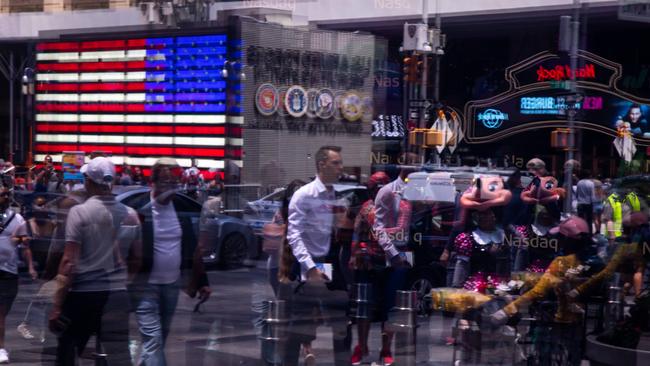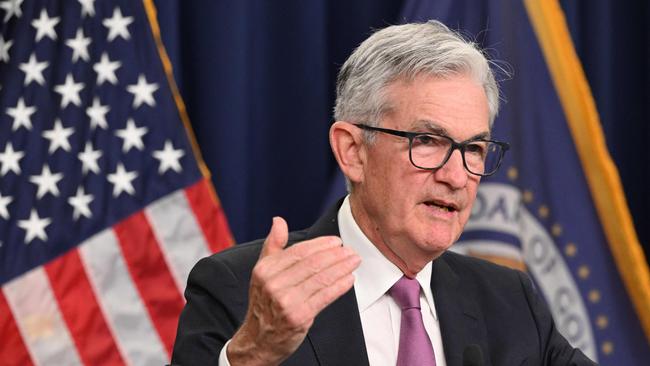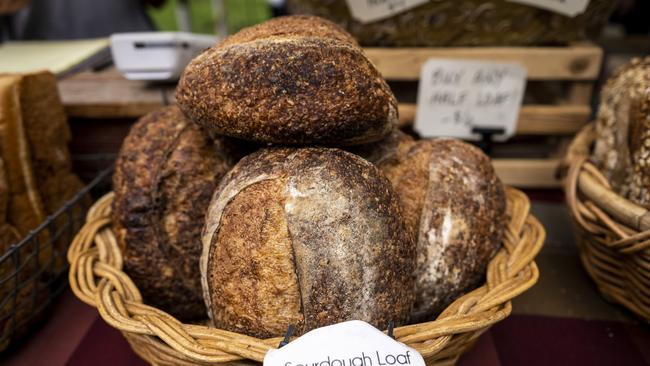
Global sharemarkets are rediscovering the rule that has underpinned economic management for over 100 years – when inflation becomes embedded in the economy it can normally only be removed by a severe economic downturn.
And Australians discovered that the world believes that we are among the most vulnerable developed countries when global traders began dumping the Australian dollar, which will put great pressure on our Reserve Bank to raise rates further.
Speculation on just how severe the US, European and Australian downturns must become in 2022-23 to force governments and enterprises to stop lifting prices and wages will now dominate the setting of values in both share and property markets.
As I will detail below, this particular bout of inflation has some unusual aspects and I bring at least a sliver of potential good news.
But first to Wall Street.

In past months, there has been considerable shorting of American stocks by the performance hungry institutions.
The recent share market rally made those shorters nervous and in the last few weeks, we have seen considerable short covering (buying back shares) boosting prices.
Accordingly, the market went into the latest inflation data with the shorters itching for some bad news.
The actual news was that inflation in the US remained high because, at least on the surface, interest rates have not yet increased sufficiently to stop wage and price hikes.
But disturbing underlying trends also emerged that will be duplicated in Australia:
– Over the past three months, US rents have risen 2.2 per cent, the equivalent of a 9.2 per cent annual rate. Many US cities are seeing rent increases above 10 per cent. That will spread rapidly and, because housing is a big part of the US CPI, it will underpin inflation. That’s a danger sign for Australia, particularly in Queensland and Victoria, where state governments discourage investors from rental housing by giving tenants great power.
– A Goldman Sachs survey of American small businesses reported that 77 per cent experienced inflationary pressures that reduced their ability to hire labour as customers cut back spending. That’s exactly what is set to happen in Australia in 2023.
In the US, bigger Federal Reserve interest rate rises are now in the pipeline. Once again, it was the bond market that correctly forecast what was ahead.
Exactly the same pressures will apply in Australia and we have a particularly nasty problem because we elected a government that campaigned on higher wages.
Not unreasonably, large areas of the workforce are demanding those promised wage rises be delivered, given the rise in the CPI.
They are supported by influential elements in the new government, but not the Treasurer.
Jim Chalmers understands the problem.

Many highly profitable companies like banks don’t feel the need to restrain wages.
Australia is more vulnerable to interest rate rises than the US because, as I have pointed out many times, our lending spree over the last two years was unique in the world and some 30 per cent of our housing loan stock is held by people who took out loans in the last two years, many of whom would not normally have been given credit.
The full impact of the Australian recent interest rate rises will hit the economy around December/January because there is a two to three month delay between Reserve Bank announcements and the payments required from mortgage holders.
The Reserve Bank will be tempted to slow its interest rate rises, but the actual data it will receive will be out of date and may indicate that the economy is still roaring.
The bond markets expect blood and if the Reserve Bank disappoints them, they may trash our dollar and, given our dependence on imports, that will underpin inflation and require later higher interest rates.
But there are deeper problems.
The international community is becoming less globalised and that will increase overall costs. The combination of decarbonising and the Ukraine war means that energy is becoming more costly with greater stress.
Politics is now deeply involved.
We are in danger of entering an era of high inflation and lower economic activity creating a stagflation situation.
Former Reserve Bank governor Ian Macfarlane has warned current central bank incumbents, but they may need to settle on a four per cent inflation target because the economic costs of trying to get back to two to three per cent might be too great.
Next year as the downturn hits, those Macfarlane words will reverberate among his colleagues.
One of the forces that may help Australia is the fact that China has low inflation and is stimulating its economy.
In addition, a key force boosting energy costs is, of course, the Ukraine war and the isolation of Russian gas and oil it has created.
My comment yesterday that the Russian military was in desperate trouble arming its troops partly because it had taken shortcuts in the development of its military capability by using technology and computer chips from the West, has been confirmed by Ukraine research.
They have started making special pleas to chip makers in Europe South Korea, Taiwan and the US to continue not supplying Russia.
If that embargo holds, Russia may be forced into either defeat or using nuclear weapons.
I am not going to speculate on the nuclear issue but if the embargo on chips holds, then Russia is headed for more big losses and, conceivably, at least some of its gas and oil may be freed into the marketplace.
This is perhaps more a hope than a forecast.





